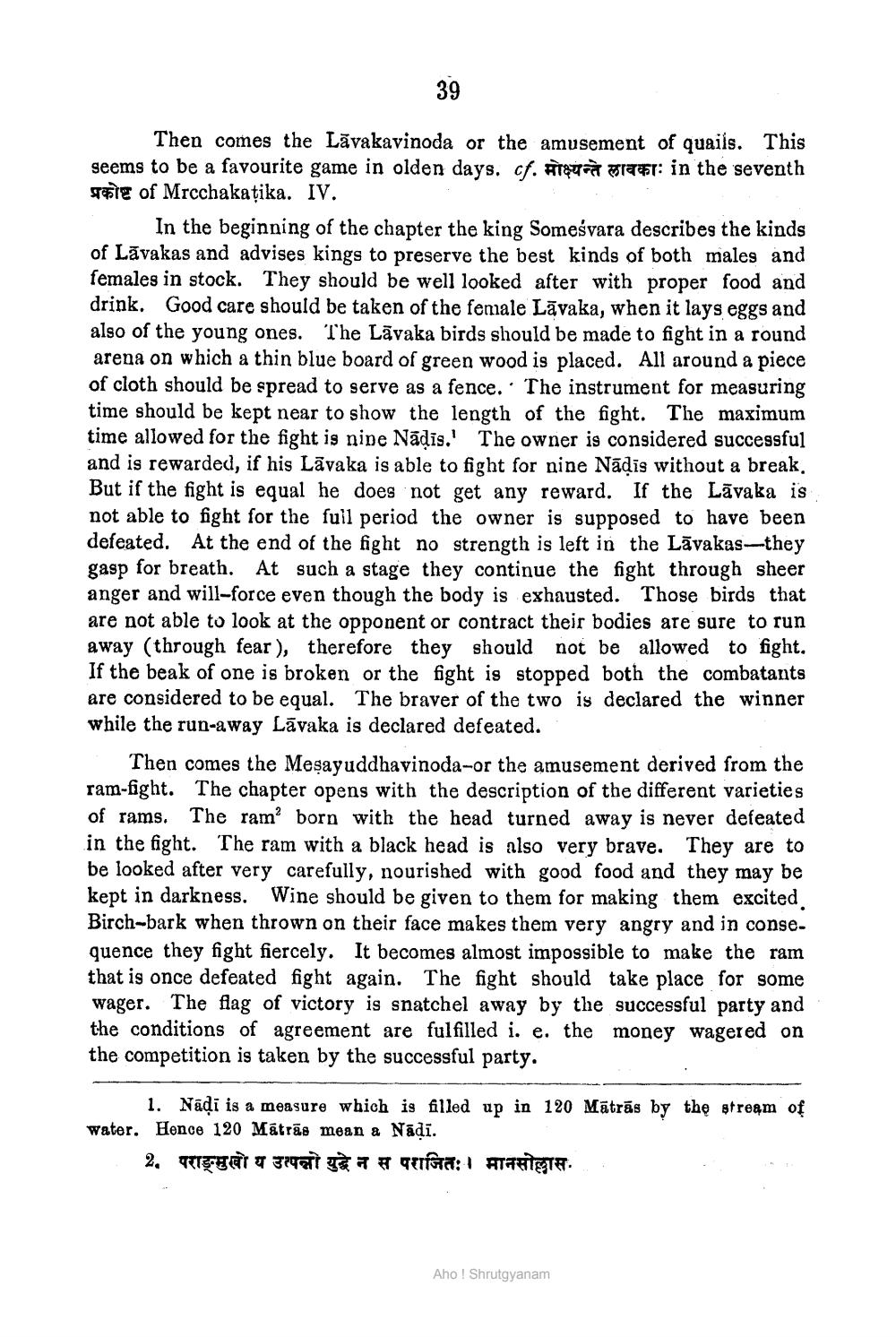________________
Then comes the Lāvakavinoda or the amusement of quails. This seems to be a favourite game in olden days. cf. Hieraar: in the seventh Tale of Mrcchakatika. IV.
In the beginning of the chapter the king Someśvara describes the kinds of Lāvakas and advises kings to preserve the best kinds of both males and females in stock. They should be well looked after with proper food and drink. Good care should be taken of the female Lāvaka, when it lays eggs and also of the young ones. The Lāvaka birds should be made to fight in a round arena on which a thin blue board of green wood is placed. All around a piece of cloth should be spread to serve as a fence. The instrument for measuring time should be kept near to show the length of the fight. The maximum time allowed for the fight is nine Nādis.' The owner is considered successful and is rewarded, if his Lāvaka is able to fight for nine Nādis without a break. But if the fight is equal he does not get any reward. If the Lāvaka is not able to fight for the full period the owner is supposed to have been defeated. At the end of the fight no strength is left in the Lāvakas--they gasp for breath. At such a stage they continue the fight through sheer anger and will-force even though the body is exhausted. Those birds that are not able to look at the opponent or contract their bodies are sure to run away (through fear), therefore they should not be allowed to fight. If the beak of one is broken or the fight is stopped both the combatants are considered to be equal. The braver of the two is declared the winner while the run-away Lāvaka is declared defeated.
Then comes the Mesayuddhavinoda-or the amusement derived from the ram-fight. The chapter opens with the description of the different varieties of rams. The ram? born with the head turned away is never defeated in the fight. The ram with a black head is also very brave. They are to be looked after very carefully, nourished with good food and they may be kept in darkness. Wine should be given to them for making them excited. Birch-bark when thrown on their face makes them very angry and in quence they fight fiercely. It becomes almost impossible to make the ram that is once defeated fight again. The fight should take place for some wager. The flag of victory is snatchel away by the successful party and the conditions of agreement are fulfilled i. e. the money wagered on the competition is taken by the successful party.
1. Nāļi is a measure which is filled up in 120 Mātrās by the stream of water. Hence 120 Mātrās mean a Nādī.
2. पराङ्मुखो य उत्पन्नो युद्धे न स पराजितः। मानसोल्लास.
Aho ! Shrutgyanam




